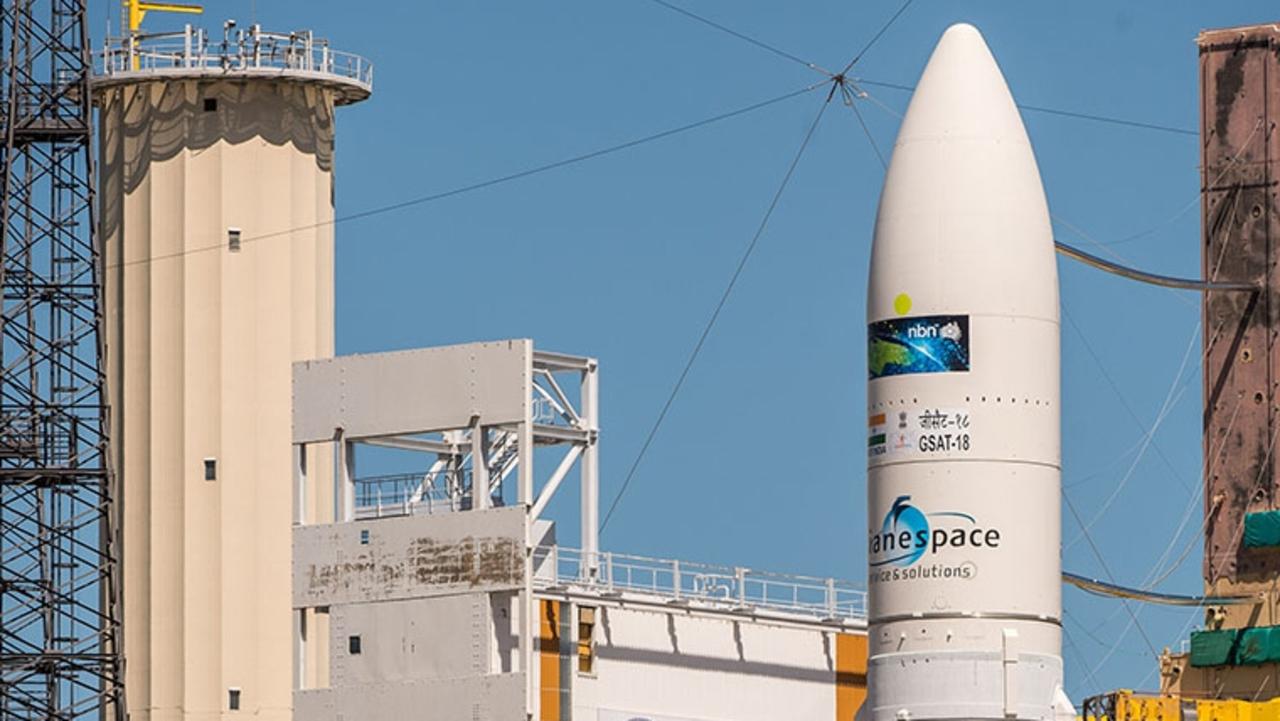Could super-fast and widely available 5G be the final nail in the troubled NBN’s coffin?
YEARS before its completion, the NBN could be superseded by a widely available new technology on the cusp of launching.
YEARS before its completion, there are concerns the troubled National Broadband Network could be superseded by a widely available new mobile technology on the cusp of launching.
The new super-fast 5G cellular network will begin rolling out from next year, with Telstra already trialling it in preparation, and an expected completion date of 2020.
It will be the first mobile technology of its kind to offer a service comparable to current broadband internet, in terms of speed and capacity, experts say.
In a speech last week, Australian Competition and Consumer Commission chair Rod Sims said the rollout would have a “significant impact on broadband markets, including the NBN”.
“Mobile broadband services may become more of a viable substitute for fixed broadband,” Mr Sims said.
“This leads us to an interesting competition issue: what does 5G mean for the NBN? We will need to wait and see what happens when 5G becomes widely available and how markets react.”

Last year, former NBN Co boss Bill Morrow called for a tax on mobile broadband services, in what was seen as a bid to restrict competition when it launched.
Then Prime Minister Malcolm Turnbull quickly shot down the idea, but the apparent concern by the NBN’s operators has led the ACCC to issue a warning.
“What we must never do, however, is seek to restrain others in order to protect the NBN business model. This would be a disaster for consumers,” Mr Sims said.
The NBN has been plagued by significant issues for years, from budgetary blowouts and lengthy delays, to growing anger among consumers about questionable speeds and patchy reliability.

At present, Australia’s mobile network is capable of providing data download speeds of up to 20 megabits per second, but the actual connection speed is lower due to congestion.
“The maximum download speed of 5G networks could be more than one gigabit per second,” says University of Melbourne’s Profess Rod Tucker. “But in practice, it will likely provide download speeds around 100 megabits per second or higher.”
Professor Tucker said consumers could see the 5G network as a convenient alternative to connecting to the NBN.
However, the cost would be substantially higher given NBN plans would offer higher amounts of data than mobile packages.
“This will always be a key difference between the NBN and 5G,” he said.
In addition, 5G networks will have a shorter coverage range and operators will need to invest in more base stations to provide similar coverage to what’s currently available with 4G.

A spokesperson for NBN Co said it was already facing competition from high-speed 4G networks but uptake of the service remained strong.
“Despite this competition from high-speed 4G mobile, NBN is already achieving our targeted take-up rate of nearly 75 per cent right across the country,” the spokesperson said.
“We have always forecast that around 25 per cent of homes will be either mobile-broadband only homes or will be vacant and take no broadband service — and that is exactly what is happening on the ground.”
It expects that eight million homes will have activated connections to the NBN network by 2020 when 4G is fully rolled out.
“The reality is that even with nationwide high-speed 4G available, fixed-broadband networks — including the 4.4 million homes and businesses on the NBN network — are still carrying around 97 per cent of all internet traffic in Australia with mobile carrying the remainder.”

Harrison Astbury from the consumer comparison service Canstar Blue said it was going to be an exciting few years for internet technology in Australia.
“It’s the hot debate starting to flare up as 5G edges closer to release to the public — 5G is hotly anticipated to reach gigabit speeds, while the NBN has been met with controversy as it seemingly flounders with 100Mbps top speeds,” Mr Astbury said.
But he doesn’t think 5G will be the NBN killer some suspect.
“That doesn’t mean you shouldn’t get a little excited about it. With up to 20Gbps download speeds a theoretical possibility, Australia could experience a whole new world when it comes to the internet. It may see a complementary role alongside NBN,” Mr Astbury said.




